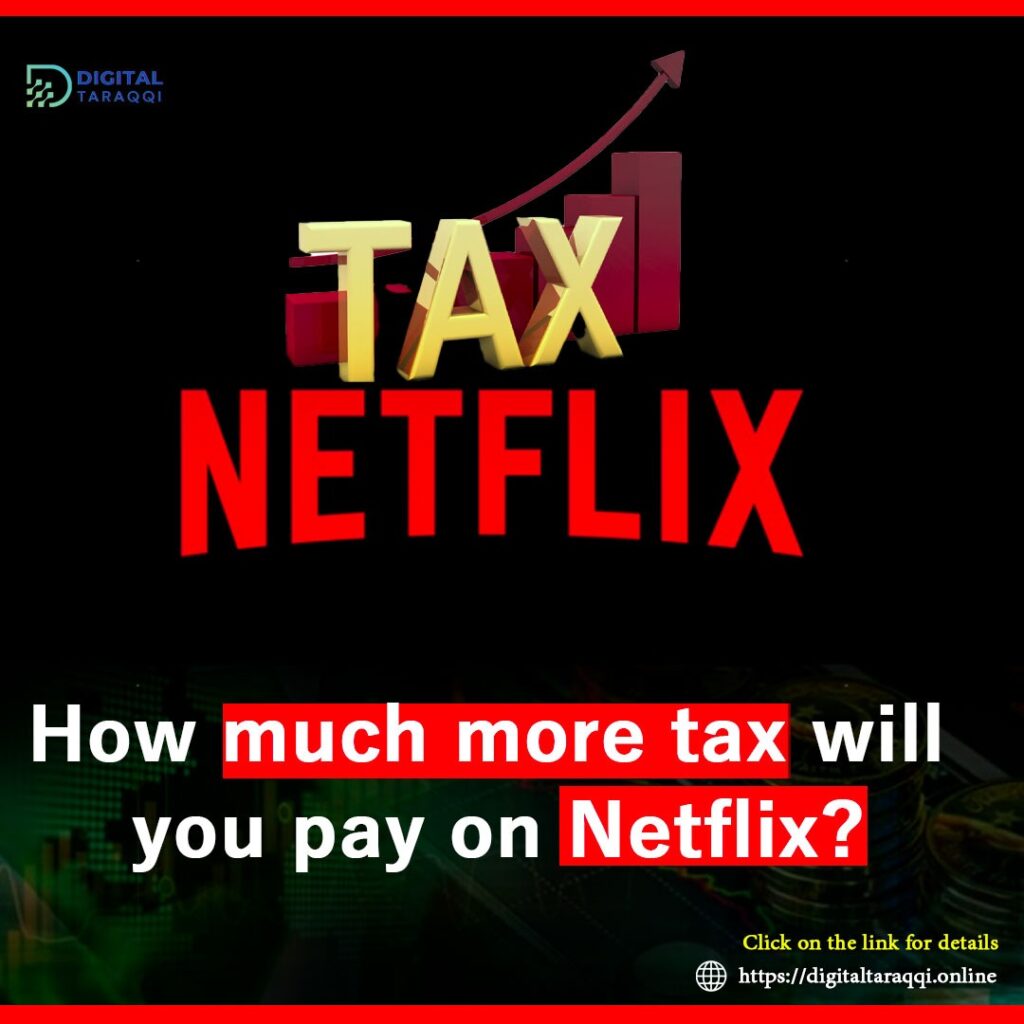Netflix Subscription Fees in Pakistan Now Subject to Tax, New Tax Bomb

Netflix subscribers in Pakistan will now pay an additional 3% sales tax on IT services, with banks collecting the tax as withholding agents.
A new tax has been imposed on the video-on-demand streaming service Netflix in Pakistan. Subscribers using debit cards to pay their subscription fees will now have to pay a 3% sales tax on IT services. Banks will act as withholding agents to collect the additional tax.
Last year, after compelling banks to deduct 13% provincial sales tax on advertising services, the Sindh Revenue Board (SRB) has now imposed an additional tax on Netflix.
According to media reports, a 5% advance tax on international transactions (for filers), along with federal excise duty and 4% card transaction charges, has been set. For non-filers, the advance tax on international transactions will be different, with a 10% advance tax for non-ATL (Active Taxpayer List) individuals.
Netflix subscription plans in Pakistan are priced as follows:
- Mobile: PKR 250 per month
- Basic: PKR 450 per month
- Standard: PKR 800 per month
- Premium: PKR 1,100 per month
Company has clarified on its website that taxes may be applied in addition to the subscription fee, depending on the user’s location. The new Finance Bill 2024 has included tech companies that earn money through digital means in Pakistan under the tax net.
It is important to note that Netflix is a streaming service offering TV shows, movies, documentaries, and more on thousands of internet-connected devices. The service provides various subscription plans ranging from PKR 250 to PKR 1,100 per month, allowing users to watch its content.
Last month, Pakistan’s Federal Board of Revenue (FBR) issued a notice to the streaming giant for the recovery of over PKR 200 million in income tax. According to media reports, the Additional Commissioner of the CTO Islamabad demanded over PKR 200 million for two different years under Section 6 of the Income Tax Ordinance (ITO) 2001. Company had declared revenue of PKR 1.3 billion in Pakistan during the financial year 2021.
Netflix is an American subscription video on-demand Internet streaming service. The service primarily distributes original and acquired films and television shows from various genres, and it is available internationally in multiple languages.[6]
Launched on January 16, 2007, began its pioneering DVD‑by‑mail movie rental service, Netflix is the most-subscribed video on demand streaming media services, with over 269.6 million paid memberships in more than 190 countries as of April 2024.[5][7] By 2022, “Netflix Original” productions accounted for half of its library in the United States and the namesake company had ventured into other categories, such as video game publishing of mobile games via its flagship service. As of October 2023, Netflix is the 23rd most-visited website in the world with 23.66% of its traffic coming from the United States, followed by the United Kingdom at 5.84% and Brazil at 5.64%.
Launch as a mail-based rental business (1997–2006)
Company was founded by Marc Randolph and Reed Hastings on August 29, 1997, in Scotts Valley, California. Hastings, a computer scientist and mathematician, was a co-founder of Pure Software, which was acquired by Rational Software that year for $750 million, the then biggest acquisition in Silicon Valley history.[10] Randolph had worked as a marketing director for Pure Software after Pure Atria acquired a company where Randolph worked. He was previously a co-founder of MicroWarehouse, a computer mail-order company, as well as vice president of marketing for Borland.
Hastings and Randolph came up with the idea for Netflix while carpooling between their homes in Santa Cruz, California, and Pure Atria’s headquarters in Sunnyvale.[13] Patty McCord, later head of human resources at Netflix, was also in the carpool group.[14] Randolph admired Amazon and wanted to find a large category of portable items to sell over the Internet using a similar model.
Hastings and Randolph considered and rejected selling and renting VHS as too expensive to stock and too delicate to ship.[11] When they heard about DVDs, first introduced in the United States in early 1997, they tested the concept of selling or renting DVDs by mail, by mailing a compact disc to Hastings’s house in Santa Cruz.[11] When the CD arrived intact, they decided to enter the $16 billion Home-video sales and rental industry.






